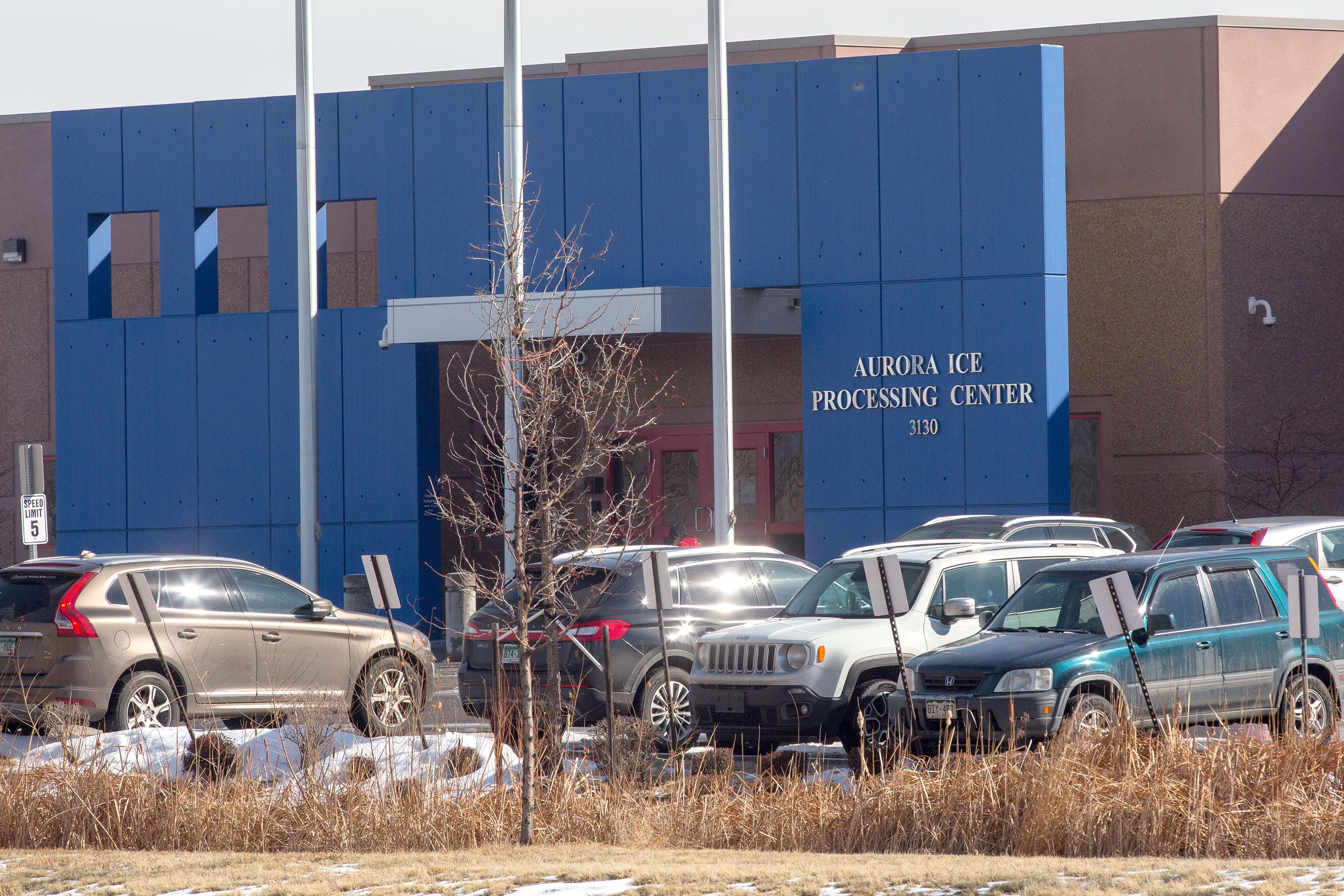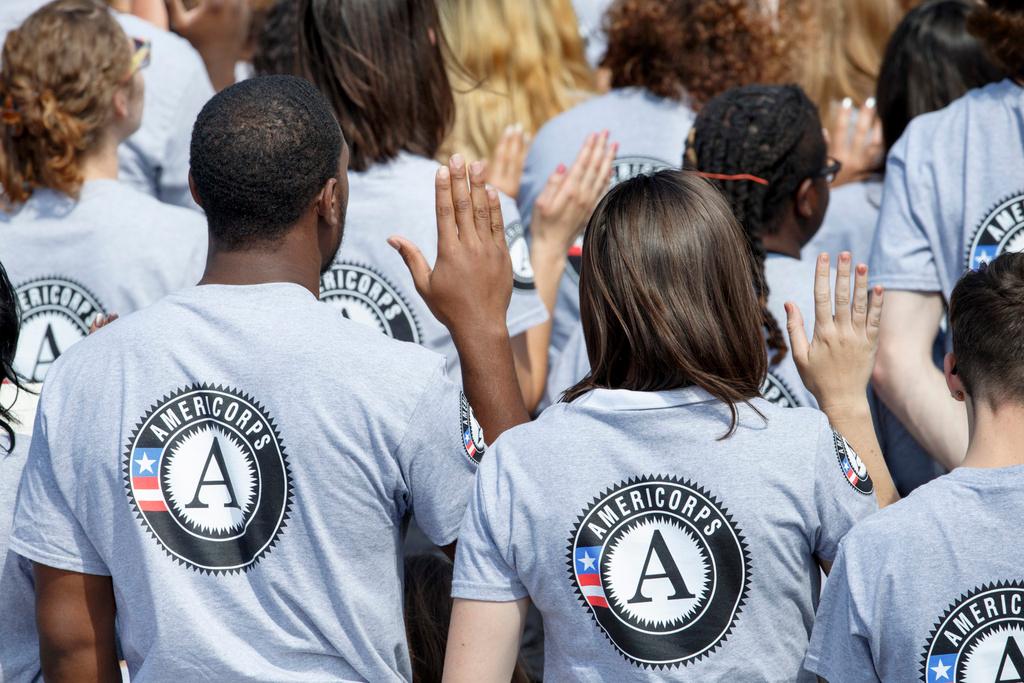
A U.S. District Court judge in Denver extended her restraining order banning the federal government from sending two Venezuelan men – and potentially 100 others – outside of Colorado.
The ruling is another judicial roadblock to any as-yet-undisclosed plan by the U.S. Department of Homeland Security to deport more than 100 Venezuelan men currently being housed at the GEO detention facility in Aurora to a notorious Salvadoran prison.
“For one of the first times in months, we are able to breathe a sigh of relief,” said Laura Lunn, an attorney from the Rocky Mountain Immigrant Advocacy Network representing the two Venezuelans. “Our community has been disproportionately targeted by the Department of Homeland Security and we have already lost too many neighbors, fathers, partners and friends to this lawlessness.”
The Justice Department did not immediately respond to a request for comment on Sweeney's order.
Lawyers for the Venezuelans say they have identified 11 people who at one point were detained in Aurora and have already been moved to El Salvador. They say they can’t be sure there aren’t more given that more than 1,200 people are being housed in the Aurora detention facility. The federal government hasn’t given precise numbers about how many of them are Venezuelans and therefore could be considered eligible for deportation under the Alien Enemies Act.
The two plaintiffs named in the emergency petition filed by the ACLU of Colorado and lawyers from the Rocky Mountain Immigrant Advocacy Network are identified only by initials, R.M.M. and D.B.U., are 25 and 32 years old, respectively, and were living in Colorado. They both crossed the border into Texas a few years ago, according to court documents.
Neither faces any criminal charges and had filed asylum claims because they feared persecution and gang violence in their home country, their attorneys said.
The federal government has said they aren’t currently being considered for Salvadoran deportation, but the government lawyers didn’t rule that out completely to Sweeney during a hearing on Monday.
The two men are among roughly 100 others like them detained in Colorado that could be part of a larger class action case immigrant and civil rights advocates are working on to halt deportations to the Salvadoran Terrorism Confinement Center. Human Rights Watch has documented cases of torture and other abuses in the prison.
“I can't express to you just how much this means because the people detained here that we talk to every day in the facility are terrified,” Lunn said. “We see people giving up on themselves and their cases because they want to avoid deportation to a torture prison in El Salvador. And so what this means is that they have protection to exercise their rights. For them to be able to say, I can pursue my case because I won't just be disappeared in the middle of the night tonight.”
In the 35-page ruling on Tuesday, Sweeney provisionally certified the class of people, which include the Venezuelans identified by Lunn’s team who have been detained in 2025.
Sweeney also found that the ACLU met the burden to receive a temporary restraining order, meaning that neither man can be removed from the country without any hearing or “meaningful review,” she said.
The federal government has argued that this order would “impede the government’s ability to enforce the immigration laws and to arrest, detain, and remove unlawfully present aliens who may pose a danger to the public.”
But Sweeney disagreed, saying attorneys for the two men convinced her that the men face the risk of being deported, perhaps wrongfully deported, and would face "irreparable harm” in a Salvadoran prison.
In her order, she not only banned the federal government from moving the two men to El Salvador, she said they must stay in Colorado and if they were to be moved, they, and other members of the conditional group of 100, would have the right to seek judicial review and be provided legal disclosure “in a language they understand.” There were reports in Texas that the federal government handed out one-page fliers to men considered to be enemies of the United States in English only.
Sweeney, an appointee of President Joe Biden, also said that the ACLU proved they were likely to succeed on the facts of the case, that their clients would likely “suffer irreparable harm in the absence of preliminary relief,” that the balance of equities tips in their favor and that this is in the public interest.
Tim Macdonald, the ACLU of Colorado’s legal director, said that by Sweeney ordering the federal government to keep the class of people in Colorado, it prevents the “shenanigans” they embarked on earlier this month by moving immigrants to a place that isn’t protected by a temporary restraining order.
“The law is very clear. They are entitled to due process,” he said. “And the reason that's so fundamental to all of our liberties is that due process makes sure that the government doesn't make the kind of mistakes that we know they have been making, sending people to the Salvadoran prison by mistake.”
The judge seemed particularly moved by the government’s inability to say for certain that the two men would never be subject to President Donald Trump’s proclamation invoking the Alien Enemies Act, even while declaring in court Monday that they were not currently subject to it.
“It is not dispositive that D.B.U. and R.M.M. are not “currently” designated as “subject” to the Proclamation when the government may revise this designation at any time—and failed to eliminate that possibility, or the speed with which such re-designation could occur, when asked directly at oral argument,” Sweeney wrote in the order. “Petitioners have shown there is a “substantial risk that the harm” of being subject to the Proclamation will arise—despite their current designation as individuals who do not fall under it—such that they have met their standing burden.”
Sweeney went on to find that substantial questions exist around whether the president has the authority to declare immigration by gang members, even if unlawfully conducted, to be an enemy invasion.
Sweeney’s ruling comes the same week the U.S. Supreme Court has taken an interest in a similar case out of North Texas. The high court ruled overnight on Saturday that the federal government could not deport a group of Venezuelans to El Salvador without due process.
The immigrant advocacy lawyers say they aren’t trying to prevent U.S. detention of the two men, nor are they making arguments on their existing claims for asylum.
Rather, they believe the federal government needs to allow everyone in the United States a right to due process.
They say whisking people to a prison abroad without allowing them the chance to go before a judge violates constitutional rights afforded to everyone, regardless of status, who is on U.S. soil.
Sweeney gave the ACLU until Friday to request a preliminary injunction. Macdonald said they plan to meet that deadline.
| This story is part of a collection tracking the impacts of President Donald Trump’s second administration on the lives of everyday Coloradans. Since taking office, Trump has overhauled nearly every aspect of the federal government; journalists from CPR News, KRCC and Denverite are staying on top of what that means for you. Read more here. |
Invest in a more sustainable future. Support climate solutions reporting.









